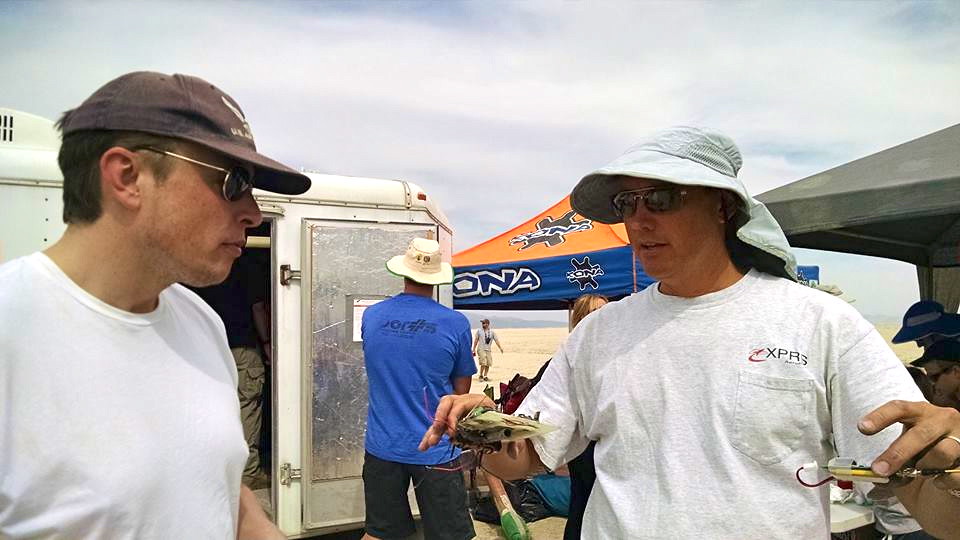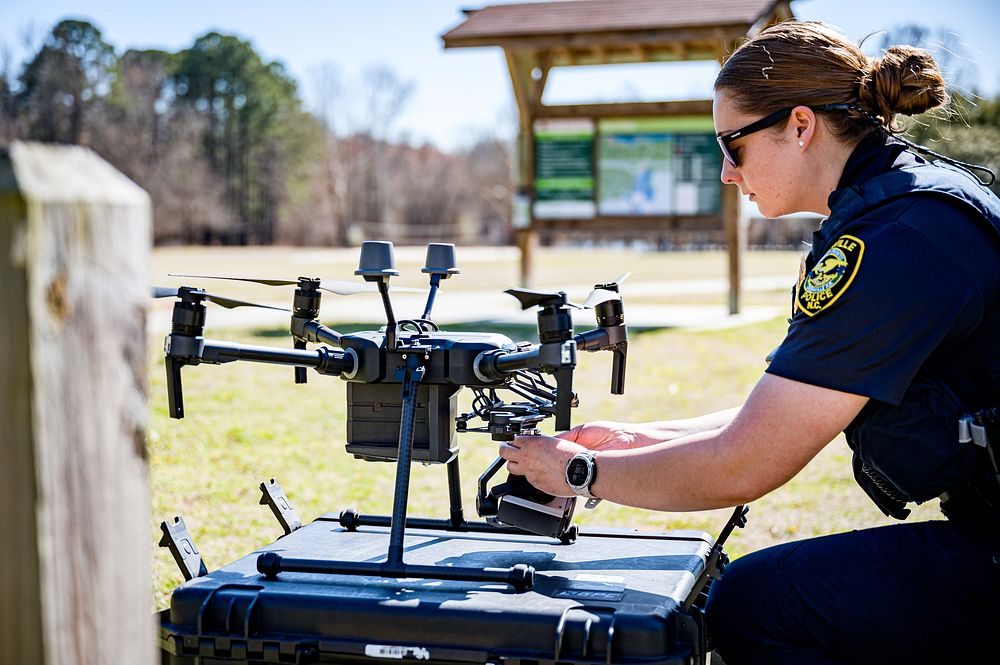
In the ever-evolving landscape where technology intersects with the lives of the world’s most powerful individuals, few navigate these trends with the same ease as Jack Sweeney. As a student at the University of Central Florida, Sweeney first gained widespread attention for using publicly available flight data to track Elon Musk’s private jet and share its movements on social media platforms.
Years later, this initial endeavor led him into a highly publicized dispute with the CEO of SpaceX and Tesla, yet Sweeney remains at the center of discussions surrounding transparency, data access, and the extreme measures taken by powerful figures to control their digital footprints. His latest move? He may have secured a unique naming rights agreement for his alma mater’s football stadium.
This story took an unexpected turn recently when UCF football head coach Gus Mazzan met Sweeney in Chicago. Mazzan captured the moment, sharing a selfie of the two on X (formerly Twitter) with the caption: “Hey, @elonmusk. I found the guy who’s been tracking your plane.” He added, “Glad to see @Jxck_Sweeney in Chicago!”

Sweeney, known for tracking celebrities such as Taylor Swift and Florida Governor Ron DeSantis, seized the opportunity. He reposted the coach’s post on his own account and directly suggested to Musk: “Hey, @elonMusk, sponsor UCF’s stadium and consider making @ElonJet disappear.”
This idea immediately sparked heated discussions among online commenters and UCF fans. Despite the university already having existing commitments, the concept of a “SpaceX Stadium” quickly gained attention.
UCF entered into a 10-year naming rights agreement with FBC Mortgage in 2022 to name its on-campus football stadium, reportedly valued at nearly $20 million. Before becoming the FBC Mortgage Stadium, the venue was affectionately referred to as the “Inflatable Castle” for approximately two seasons following the expiration of the previous naming rights agreement in 2020.

Recently, Sweeney confirmed the sincerity of his proposal during an interview with FOX 35. He acknowledged the enthusiasm of fans regarding this possibility and mentioned comments such as “Just do it @Elon Musk” and “If you can make this happen, you’ll be the king of Orlando!!”
Sweeney discussed his connection to the university and the thematic alignment with Musk’s entrepreneurial projects, stating, “I’ve always had a deep affection for UCF. UCF truly offers numerous development opportunities for aerospace students, many of whom go on to work at the space center. But you know, when I saw him share that photo, I thought, ‘You know what? I think this idea is pretty cool.’”
He spoke candidly about the impact of such collaborations, confirming that if Musk accepts, he would indeed fulfill his commitment. “Obviously, if it happens, I have to do it,” Sweeney told us, though he tempered expectations, adding that he “doesn’t think it will happen, but if it does, that would be cool.”

When considering potential names, Sweeney’s personal preference aligns perfectly with Musk’s portfolio: “Starlink Stadium,” he said. He also noted that other forms of sponsorship, potentially including in-stadium branding partnerships, would also constitute successful outcomes in his view.
As of now, Elon Musk has not made a public response on the X platform, despite being highly active there. FOX 35 has reached out to the UCF Athletics Department for comment but has not yet received a response.
Sweeney created the @ElonJet account in 2020 while still a teenager. The account is designed to automatically post flight data for Musk’s Gulfstream G650ER jet (call sign N628TS). By utilizing publicly available flight data, the account displays flight path maps and provides estimated fuel consumption and carbon emissions for the jet.

The core of this technology relies on publicly available aircraft tracking data obtained through services such as ADS-B Exchange.
In 2022, the conflict escalated, and Musk reportedly contacted Sweeney directly. Sweeney said Musk asked him to shut down the account, saying the system was too primitive and expressing safety concerns. Musk reportedly offered Sweeney $5,000 to stop the tracking activity.
Sweeney rejected the offer. He recalled the conversation, saying, “He reached out to me and asked, ‘Can you turn this off?’ Then he said he didn’t like the entire system, calling it primitive, and then he offered me $5,000 to shut it down.”

Sweeney believed the offer did not adequately reflect the effort he had put in, so he countered with a proposal of $50,000 plus an internship opportunity. According to reports, Musk rejected the offer, and the negotiations ultimately failed to reach an agreement. Sweeney explained the reasons for his stance, stating: I have invested a significant amount of work and time into this, which is something I enjoy doing, and $5,000 seems disproportionate to the value I derive from it, and I enjoy doing this.”
In December 2022, following Musk’s acquisition of Twitter, the controversy reached its peak. The @ElonJet account was permanently suspended. The platform stated that the account was suspected of violating social media platform rules, and Musk subsequently described it as a “physical safety violation.”
After the suspension, Sweeney found a workaround. He created a new account, @ElonJetNext, and continued to post the same public flight data, but with a 24-hour delay. This adjustment allowed him to continue sharing the information while complying with the platform’s revised real-time location sharing policy.

At the time the account was suspended, the original @ElonJet account had accumulated over 500,000 followers, indicating significant public interest in tracking the movements of high-profile private jets.
Beyond technical and platform-specific aspects, Sweeney views Musk’s handling of the account from a broader principled perspective. In an interview with the Associated Press, he referenced Musk’s public stance on free speech, stating, “(Musk) says this is about free speech, but he’s doing the opposite.” This highlights the contradiction between Musk’s public statements and private actions when it comes to information involving himself.
Elon Musk is not the only celebrity with whom Sweeney has clashed over tracking activities. Between December 2023 and February 2024, Sweeney was involved in a dispute with pop music sensation Taylor Swift.

Swift’s legal team sent Sweeny a cease-and-desist letter regarding an X account that specifically tracks her private jet flight data. According to reports, Swift’s lawyers demanded that he cease what they referred to as “stalking and harassment.”
In response, Sweeny defended his actions, claiming that the information he used was publicly available and that sharing it was in the public interest. He argued, “Her fans, the very group that has made the TaylorSwiftJets account and subreddit grow, are the ones truly interested. These tracking accounts have always had more supporters and fans.”
He further cited external validation of public interest, stating, “When the U.S. Embassy in Japan expressed confidence that Swift could fly from Tokyo to the Super Bowl, it demonstrated public interest.” Sweeney’s position is that if the information is public, tracking and sharing it is a reasonable expectation: “Therefore, people should reasonably expect their jets to be tracked, whether by me or not, since it is public information.”
The conflict with Swift also drew comments from Musk, who sided with the singer. In February, Musk posted on X: “Sweeney is a terrible person. Taylor Swift has reason to be concerned.“ Sweeney quickly responded, referencing their past disputes: ”Don’t forget you offered $5,000 for me to stop tracking you and threatened to sue me, and now a year has passed.” This exchange highlights the shared perspective of powerful figures on tracking behavior and Sweeney’s consistent stance on data transparency.

Sweeney’s tracking activities haven’t been limited to Musk and Swift. He has created similar accounts for other billionaires and notable figures, including Jeff Bezos, Bill Gates, Mark Zuckerberg, Kim Kardashian, and Donald Trump. These activities have led to repercussions on other platforms as well.
He recently reported that his jet-tracking accounts on Threads, the platform run by Meta, were suspended. Sweeney stated that all his accounts on the Meta-run platform dedicated to tracking jets had been suspended, and notably, he claimed he received no warnings or communications from the company prior to the suspensions.
A Meta spokesperson confirmed the suspensions to Business Insider, citing privacy and safety concerns. They stated, “Given the risk of physical harm to individuals, and in keeping with the independent Oversight Board’s recommendation, we’ve disabled these accounts for violating our privacy policy.” This response echoes the concerns voiced by Musk and Swift regarding the potential dangers associated with sharing real-time or near-real-time location data.

The core of Sweeney’s activities lies in his belief in open access to publicly available historical information. He insists that his intentions are not to cause harm, but to uphold what he believes to be the “importance of transparency and public information.”
However, due to recent regulatory changes, the ability to access and disseminate such data is rapidly evolving. The Federal Aviation Administration (FAA) has implemented new regulations that will significantly impact the ability to track private aircraft using previously publicly available information.
These changes stem from the 2024 Federal Aviation Administration Reauthorization Act (legislation passed during the Biden administration), which requires the FAA to establish rules allowing private aircraft owners to conceal their personal information. The legislation grants the agency two years to develop such regulations.

Under the new regulations, private aircraft owners can now submit electronic applications to the Federal Aviation Administration (FAA) requesting that aircraft registration information be removed from public view. This means that such data will no longer be made available to the public through the FAA’s standard services. Additionally, the agency is actively evaluating the possibility of defaulting such information to private status in the future.
The implications of these rule changes are far-reaching. As the background information indicates, this development “is almost certain to be the final straw for popular flight-tracking services (such as those created by Jack Sweeney).” The era of easily tracking the movements of private aircraft owned by celebrities and business tycoons using publicly available data appears to be coming to an end.
Musk and Swift have publicly referred to those who use such data for tracking as “threats,” and they may view these regulatory changes as acknowledgment of their concerns and as necessary steps toward enhancing personal safety.
His persistence in the face of legal threats and platform bans stems from his firm belief in transparency, which has allowed the discussion to continue. However, the regulatory environment is shifting in favor of those powerful figures who were previously being tracked. Although, perhaps soon, much of this content will no longer be publicly visible.



